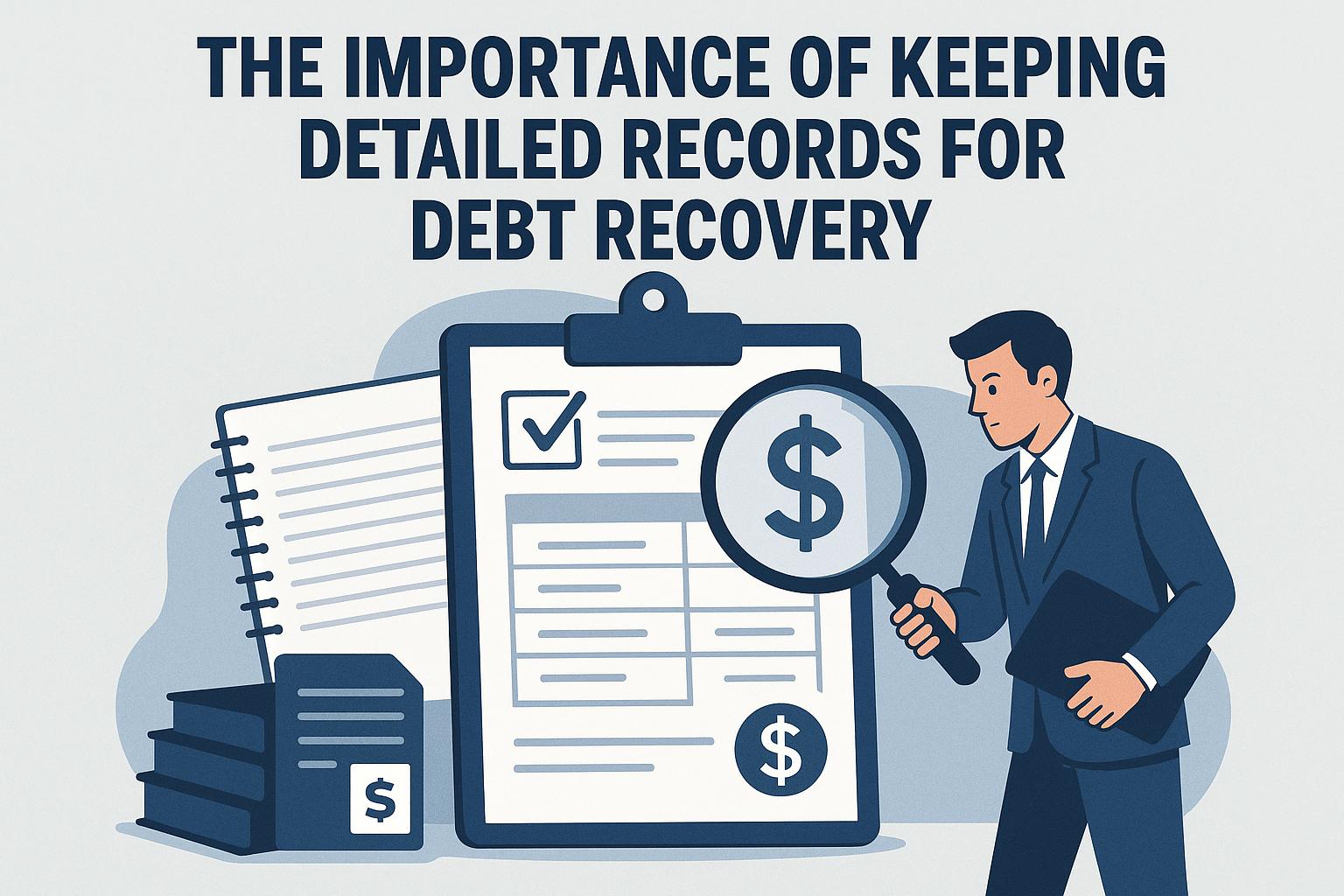
The importance of keeping detailed records for debt recovery.
Introduction to Debt Recovery
In the intricate landscape of finance, debt recovery plays a pivotal role for both businesses and individuals. Ensuring outstanding debts are recovered efficiently is crucial for maintaining liquidity and financial health. At the heart of successful debt recovery is the practice of keeping detailed records.
Why Detailed Records Matter
Debt recovery is a complex process involving several steps and numerous interactions between creditors and debtors. Without meticulously maintained records, tracking these interactions, assessing the current status of debts, and taking appropriate actions becomes an arduous task. Let’s delve into why maintaining detailed records is so indispensable in this process.
Tracking Payment Histories
One of the essential elements in debt recovery is the tracking of payment histories. Detailed records of all past transactions provide a vivid picture of a debtor’s financial behavior. Through these records, creditors can discern patterns and predict the possibility of future payments. This understanding aids in determining the most effective strategies for recovering debts, ultimately influencing both short-term cash flow and long-term financial stability.
Establishing Legal Protections
There are scenarios where pursuing legal action becomes the only viable option to recover debts. In such instances, detailed records offer evidence in a courtroom setting, validating claims related to unpaid amounts, interest calculations, and prior communications with the debtor. Without this comprehensive documentation, the legal process might not yield favorable outcomes for the creditor, which could lead to significant financial repercussions.
Improving Communication
Effective communication is often at the core of debt recovery. Records of past communications contribute significantly to this aspect. By referencing what has been previously discussed and agreed upon, creditors can maintain a consistent and transparent dialogue with debtors. This consistency helps in reducing misunderstandings and miscommunications, ultimately fostering a cooperative relationship aimed at resolving outstanding debts amicably.
Components of Detailed Debt Records
So, what makes up these detailed debt records? Here are some critical components that should be included:
- Invoice Details: This includes copies of all invoices sent to the debtor, with details on amounts, due dates, and payment terms.
- Payment Logs: Comprehensive records of all payments made, outlining the dates, amounts, and payment methods used.
- Communication Logs: A compilation of notes or recordings from all forms of correspondence, be it through phone calls, letters, or emails.
- Legal Documents: Copies of any legal agreements or court documents related to the debt serve as substantial proof of the creditor’s claims.
Implementation of Record-Keeping Systems
Organizations can derive substantial benefits from adopting modern record-keeping systems. These systems provide a range of features, including automated reminders, digital document storage, and analytics capabilities, each tailored to meet specific business needs. By integrating these tools, businesses streamline their debt recovery processes, enhancing overall operational efficiency and effectiveness.
Incorporating these systems ensures that the process of record-keeping is not just an administrative duty but a strategic endeavor, working to bolster a company’s financial health. With up-to-date, precise records, organizations can navigate the complexities of debt recovery with a greater degree of confidence and clarity.
Conclusion
The practice of detailed record-keeping in debt recovery is far more than a simple clerical task; it is a strategic asset that can significantly impact a business’s ability to recover debts successfully. By ensuring that these records are detailed and accurate, creditors enhance their prospects for successful debt recovery. This not only helps in sustaining financial stability but also plays a vital role in nurturing positive relationships between creditors and debtors. Through meticulous record management, businesses and individuals alike can navigate the challenging territory of debt recovery with increased assurance and improved outcomes.
In summary, detailed records form the backbone of effective debt recovery strategies. They provide the necessary framework for tracking payment histories, establishing legal protections, improving communication, and ultimately increasing the likelihood of recovering debts. With a comprehensive understanding of the necessity and benefits of these records, businesses can take informed steps toward enhancing their debt recovery processes and fortifying their financial positions.
- Posted by
 admin
admin - Posted in Uncategorized
 Oct, 17, 2025
Oct, 17, 2025 Comments Off on The importance of keeping detailed records for debt recovery.
Comments Off on The importance of keeping detailed records for debt recovery.
